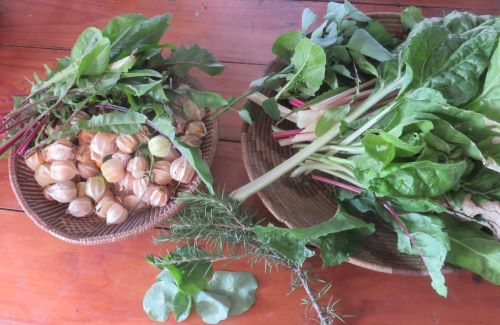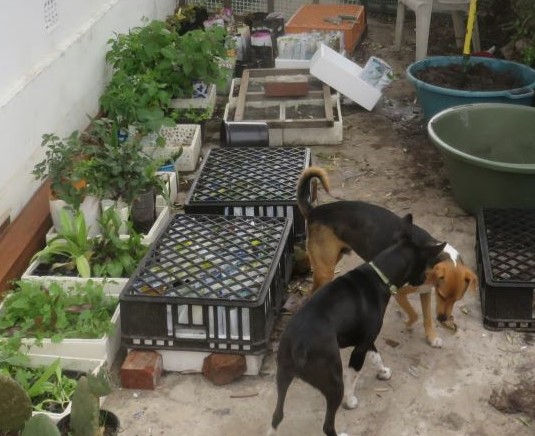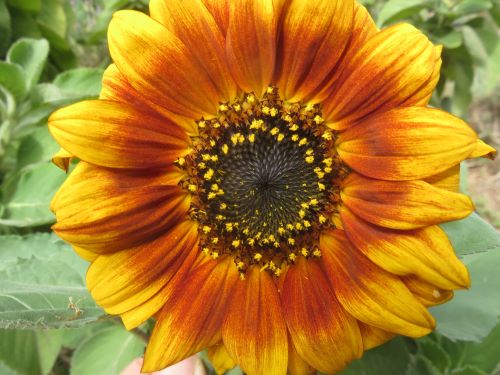| Back to Back Issues Page |
 |
|
Restore Nature, Issue #001 -- restoration benefits to you ! April 06, 2022 |
HelloRESTORE NATUREWelcome to an abundance of ecosystem servicesThis first issue of the Restore Nature newsletter welcomes everyone who wishes to receive our monthly article on urban restoration and biodiversity. This issue is on six fabulous ecosystem services, or benefits, brought to you by restoring nature. Thank you for subscribing and please feel free to comment on and reply to these mails, or even post on https://www.greenidiom.com. I'm excited to launch this new city based earth restoration project with readers. I hope that the sheer numbers of amateur gardeners in cities can make all the difference. The poison free restoration of vegetation in cities will support urban biological diversity and even carbon sequestration. Just like yourselves, I am a city dweller, and I've grown plants on window sills, balconies, in alleys, on front porches and in a small back yard. In the project of restoration every little bit helps.
Why city gardeners are so importantIn cities we have the greatest needs for eco system services offered by urban ecological restoration. The cooling effect of trees, the cleaner air, soil and water, the nutritious vegetables and wild foods, and the greater abundance of wildlife all add to the quality of human life in a place with so many human beings living in close and stressful proximity. Surprisingly, it is private gardeners who can help the most with restoration.Do you know that in most countries the area under private gardens is greater than all the nature reserves put together ? Did you know that carbon sequestration close to the source of emissions is far more effective ? That is, we need to be planting trees close to the sources of urban air pollution, not only in distant rural areas.
Isn't it insane that urban gardeners are given so little weight when they can regreen and cover the city with plants, restore the earth, take carbon out of the air, regenerate soil to combat climate change and support biodiversity ? .......and there is more !In addition to urban gardens exceeding our nature reserves in area, there are millions of miles of street frontage where the choice of the right trees can leverage restoration. Beneath these trees, many more miles of flower beds could be planted with shrubs, herbs and food plants like vegetables. Verge gardens have become the rage in South Africa and the progress and benefit to communities and homeless people has been mind blowing. What about all those dreary parks with grass and a few exotic trees that miss tapping the potential of SO MUCH LAND to help with climate change. When native fruit trees, nut orchards, olives are all possible, then a few dreary exotic and suffering trees are a terrible waste of so much potential biological wealth.If gardens, streets, parks and public areas were fully vegetated, with total vegetation cover, including as much native vegetation as possible, they would be cooling the city scape, attracting rain, maintaining plant and animal biodiversity and more. The most wonderful effect of restoring nature to cities is the psychological benefit to humans of being surrounded by natural things. It can even stop people having heart attacks or doing robberies ! This is why I've chosen the human benefit as the first topic I'll address in the Restore Nature newsletters 
So what are the benefits brought to YOU and your body by these ecosystem services ?I list here only six of the many ecosystem services provided by restored and healthy ecosystems in cities. It makes a difference to local climate, to food and mental health.1) Pollinator diversity and increased yield: At a recent global seminar on regulation to protect pollinators by the FAO, I heard that robust pollination is more effective at closing yield gaps than chemical additions. The diversity of insects in an area creates the most stable and diverse population of pollinators, catering for all plants. It is not only bees that pollinate. Some food plants need other insects. 2) Wild plants and longevity: Wild plants have not been selected for size, ease of harvest and shelf life. When you select for one trait and are not paying attention to another, the ignored trait may be reduced. Thus nutrient content has been bred out of our food plants, and massively reduced over the last century. Wild plants have not been bred like this, and therefore contain more nutrients, as well as beneficial phytochemicals that promote longevity (Introduction to Medical Seasonings: Dr Keith Scott). 3) Soil regeneration and nutrient density: One of the effects of ecologically sound restorative gardening with diverse planting, is increased soil life and soil health. A healthy soil insures optimal nutritional uptake by plants and thus more nutrient dense plants, which taste a lot better and benefit your health if you are eating them (Dan Kittredge https://www.youtube.com/watch?v=51mYOnQ4RFs). 4) Plant diversity and the gut microbiome: Each plant has a different microbiome on the leaf surface. Thus eating a diversity of plants helps diversify the human gut microbiome, leading to better physical health outcomes: The Human Microbiome MOOC, EdX Wageninen University 5) Microbobial biodiversity and human psychology: Our gut flora produces many of our neurotransmitters. Its hardly surprising then that humans exposed to a more diverse microflora are less prone to stress related mental illness :https://www.youtube.com/watch?v=AJG3zYqNgnE. 6) The emotional and physical effects of just seeing vegetation: I learned when doing Berkeley's Science of Happiness course, that research has found the mere sight of lush plants automatically soothes humans, decreasing stress, criminal behaviour and disease causing inflammatory cytokines in the blood ! https://greatergood.berkeley.edu/article/item/why_trees_can_make_you_happier. Studies in Japan have had similar results to experiments at Berkeley. Imagining a greener futureWe need to do this for ourselves. People all around the world can reduce the negative impact of cities on nature and humans. Let's do whatever we can to restore nature to our city gardens and streets and public areas.Just imagine how profoundly we could change the health of people dwelling in cities by re-greening them, using mostly diverse native plants. However, the positive effects on humans are only the beginning of a story of the beneficial impact of restoration. The rest of the ecosystem is also positively affected, and this is also beneficial to us. Restoration of the soil affects soil biodiversity, the growth of plans and the basis of the terrestrial food chain, thus all life. Healthy soil and plants help with air, soil and water purification and carbon sequestration. They all help to heal the natural hydrological cycles, which benefit the city with flood and erosion prevention, cooling and rain generation. Who would not want all of these wonderful ecosystem benefits in cities, in the stressed urban environment ? 
What are the costs ?And the cost ?If this project were undertaken as neighborhood collaborations, its possible that the cost could be so low as to be negligible. The reason for this is that anyone can grow some plants from seed or cuttings, and anyone can make compost. Any community could leave a park fallow and allow the natural vegetation to re-emerge. Its almost incredible how cheap it is because restoration harnesses the virtuous cycles in nature that increase the health of the whole system by initiating small changes and shifts. This is happening already in Cape Town with the creation of wild life corridor stepping stone gardens, and the city wide urban food growers movements. If the cities supported this citizen endeavor, it would strengthen the project. All over the world there is still potential to redirect of some of the city's organic waste streams into composting, and to create earning and trading possibilities for urban people, growers of trees, shrubs, food and other plants in backyard nurseries. The inhabitants of this earth can do this together. The collective is necessary because it increases the benefits to wildlife astronomically. By a series of small steps and with great persistence practiced on a large scale, it can be done. We can change the face of cities everywhere on the planet with a few low cost fixes. In future newsletters, I'll delve into the means of doing this. We'll cover topics like keeping a small tree nursery, propagation tips, composting, soil regeneration, growing organic food and finding water for your project. I look forward to your ideas and to us all joining the company of urban change makers. |
| Back to Back Issues Page |
